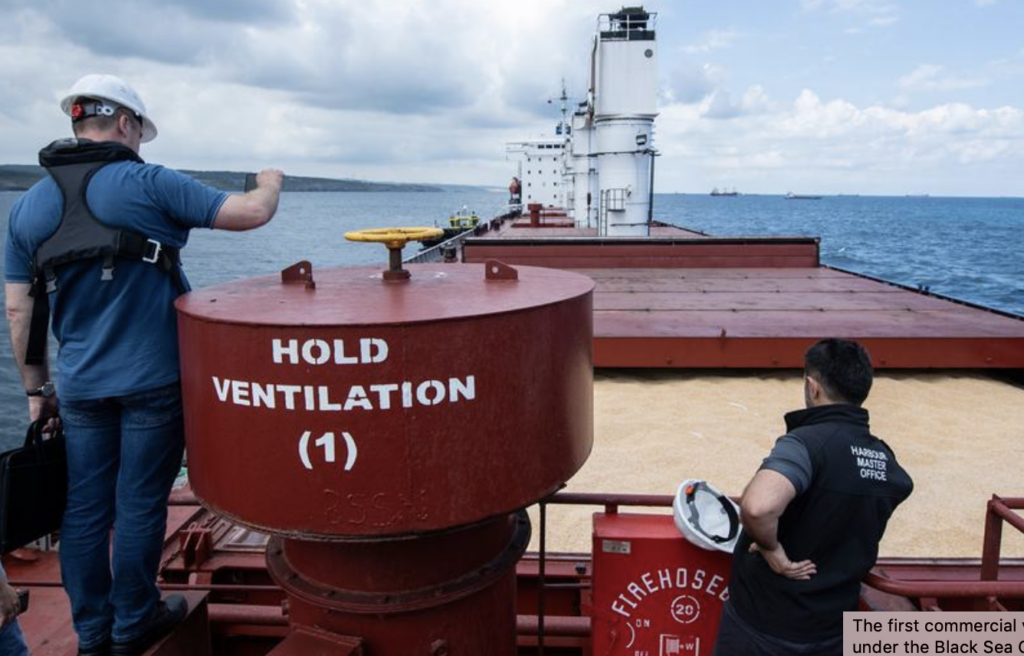Russia’s decision to withdraw from the UN-brokered grain deal "for an unspecified period of time" could risk exacerbating the global hunger crisis, even potentially pushing Somalia “over the edge” and into famine, the International Rescue Committee (IRC) has warned.
Russia announced on 29 October that it would suspend its participation in the UN-brokered Black Sea Grain Initiative, which allowed grain supplies to reach developing countries through a dedicated naval corridor, protected from the Russian navy who had previously blockaded Ukrainian ports.
It claims that Ukraine had used the safety corridor to attack its Black Sea fleet in Sevastopol, however, the UN states that there were no ships in the corridor at the time of the attack. Ukraine’s Ambassador to the UN, Sergiy Kyslytsya, said he was “outraged but not surprised” by Russia’s decision.
While Russia has pulled out of the deal, the other participants (Ukraine, Turkey, and the UN) have stated their intention to continue with grain deliveries. On Monday, 12 ships carrying 354,500 tons of food and grain left Ukrainian ports. On Tuesday, three more ships left Ukrainian ports, but without Russian guarantees of protection.
Global hunger crisis
Ukrainian President Volodymyr Zelenskyy has accused Russia of “blackmailing the world with hunger”, a claim that Russia has denied.
The war in Ukraine, which is dubbed the world's breadbasket, has drastically altered global patterns of food production and supply. In poor countries, inflation has driven to around 90%, with 345 million people estimated to experience acute food insecurity this year.
Since the blockade on grain exports was lifted in August, 9.3 million tonnes of critical foodstuffs have left Ukraine’s Black Sea ports, shipping these across the world, resulting in food prices declining for six consecutive months.
However, the IRC states that Russia’s withdrawal from the deal risks disrupting vital supplies of grain to developing countries.
“The renewed blockade is prompting grave concerns about the growing global hunger crisis, especially in East Africa, where over 20 million people are experiencing hunger, or in places like Yemen which relies on Russia and Ukraine for almost half its wheat import and where over 19 million people need food assistance,” said Shashwat Saraf, the IRC’s East Africa Emergency Director.
Especially nations in East Africa depend on supplies of cheap Russian and Ukrainian grain for their growing food needs. The IRC is calling on Russia and the international community to stick to the deal to “ensure regular and predictable food shipments” to “those who need it most.”
Of the latest shipment, 40,000 tons of grain went to Ethiopia, where there is a “real possibility of mass starvation," according to Ukraine’s infrastructure ministry.
Related News
- Bread now more expensive than ever before in EU
- Cargo ship carrying grain from Ukraine runs aground in the Bosphorus
Meanwhile, 80% of the grain purchased from Russia and Ukraine by Somalia, which is already teetering on the edge of starvation, is reliant on the UN-brokered deal. In its absence, there is a real risk that Somalia will face renewed shortages.
The IRC stressed that restarting the important deal will provide “a fraction of ease to the world’s most vulnerable," and has called for a joint global response, stating that more resources will be needed to address famine and hunger in East Africa.

